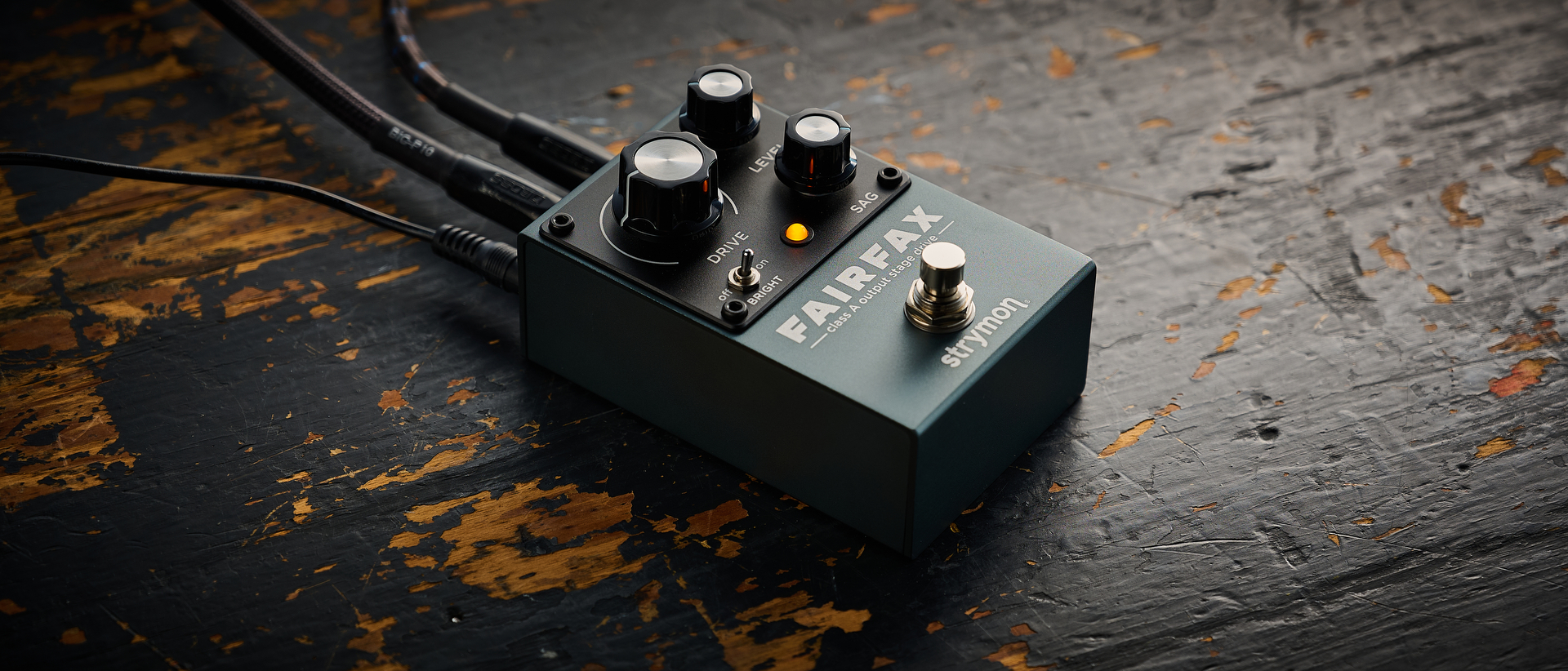Måneskin’s Victoria De Angelis and Thomas Raggi on Eurovision glory, supporting the Stones and making guitar-driven rock with zero limits
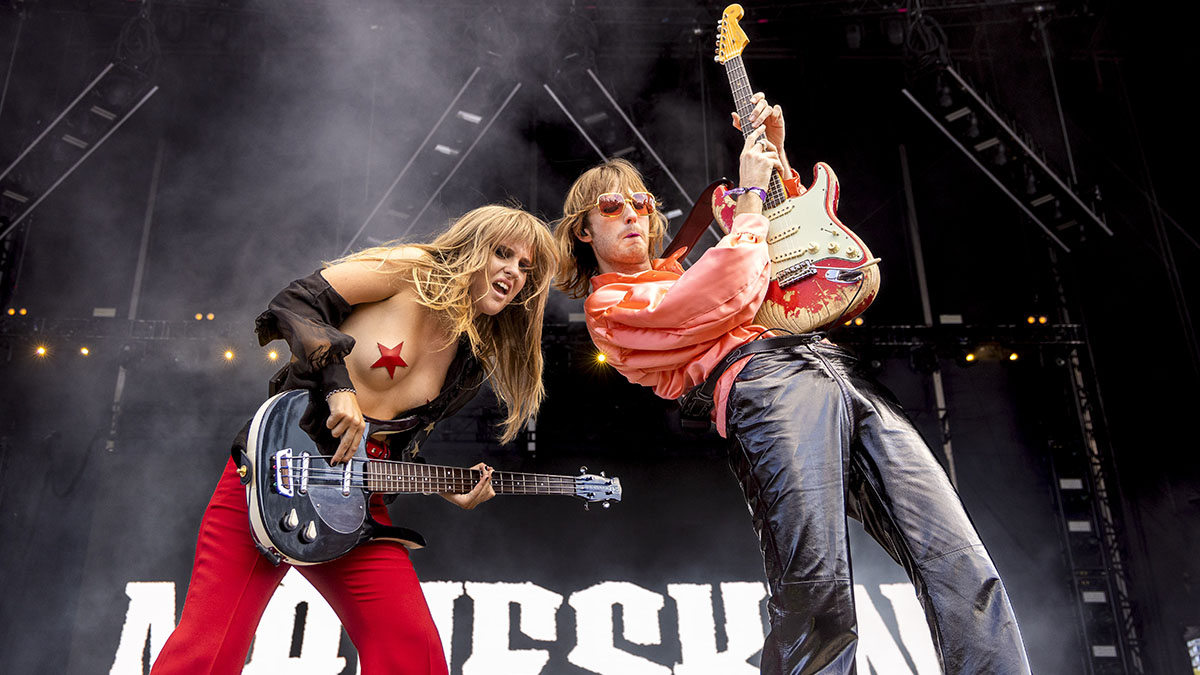
All the latest guitar news, interviews, lessons, reviews, deals and more, direct to your inbox!
You are now subscribed
Your newsletter sign-up was successful
Has there been a rock band from anywhere that has completely killed it like Måneskin during the past two years? Since winning the prestigious Eurovision Song Contest in May 2021 with their golden riff-rap-rock blaster Zitti e Buoni, the young and impossibly charismatic Italian foursome have become a worldwide sensation, dominating radio and streaming charts with a steady stream of knockout singles.
There was the rip-roaring raunch-o-rama I Wanna Be Your Slave, followed by the slinky, sexy and altogether hooky Supermodel. But perhaps their biggest – and most improbable – smash so far was their cover of Beggin’.
A minor hit by the Four Seasons in 1967, Måneskin included their revved-up, emotionally charged funk-rock version of the song on their 2017 EP, Chosen. Finally released as a single last year, it became a global favorite and got to within inches of Billboard’s hallowed Top 10 (almost unheard of in these times for a rock band).
All of which begs the question: How did an Italian rock band manage to do what no other group from their country has ever done before? According to guitarist Thomas Raggi, who formed Måneskin with bassist Victoria De Angelis and singer Damiano David in Rome in 2016, the plan was always the same – to have no plan at all.
“We don’t really overthink what we do,” he says. “We’ve always tried to be very true to our instincts and just do what we like. I think once people saw us and heard us, they realized we were simply being ourselves and enjoying what we do.”
For her part, De Angelis agrees. “I think other bands try too hard to do what the industry tells them, but fans can tell it’s fake,” she says. “If we were to even try to go that way, we would know right away we weren’t being genuine. It wouldn’t be satisfying to do what you don’t believe in, so we don’t do it.”
Thus far, Måneskin have released two full-length albums, 2018’s Il ballo della vita and last year’s Teatro d’ira: Vol. I, that demonstrate their rapidly evolving artistic growth in the studio.
All the latest guitar news, interviews, lessons, reviews, deals and more, direct to your inbox!
Complementing Raggi’s fiery array of crunching riffs, velvety rhythms and slippery solos (he namechecks Jimmy Page, Slash, John Frusciante and Jimi Hendrix as major influences) is the powerhouse rhythm section of De Angelis and drummer Ethan Torchio (she brings the punk spirit, while Torchio, who joined shortly after the group formed, is the jazz head).
Live, however, the band is already a fully formed behemoth. Showtime for them is a chance to show off, and from the moment they take the stage they explode, generating the kind of raw, visceral excitement few groups can match.
Of course, it helps to have a badass frontman, and David, who grew up studying singers like Steven Tyler and Anthony Kiedis, is a naturally flamboyant peacock who has no use for subtlety. At the recent MTV Video Awards (during which the band won a Best Alternative Video Award for I Wanna Be Your Slave), he strutted the stage in backless chaps that left nothing to the imagination.
De Angelis, too, grabbed attention for a wardrobe malfunction that saw the top of her outfit hanging down. (MTV cameras quickly pulled away, but the moment made headlines the next day.)
Playing for the Rolling Stones’ audience was a big challenge for us. The crowd came for the Stones, obviously, so we had to go out there and convince them
Thomas Raggi
One could make a case that Måneskin are cynically exploiting their sex appeal, but De Angelis pushes back on the notion. “We don’t feel like we should restrict ourselves in any way,” she says firmly. “There are underground bands that are like, ‘I’m not dressing up,’ and all of that thing, and that’s cool. But we don’t care about that. We love to dress up and have fun. We know we can deliver the music, so we’re not all about image. But for us to look the way we do, it’s just who we are. It’s rock ’n’ roll.”
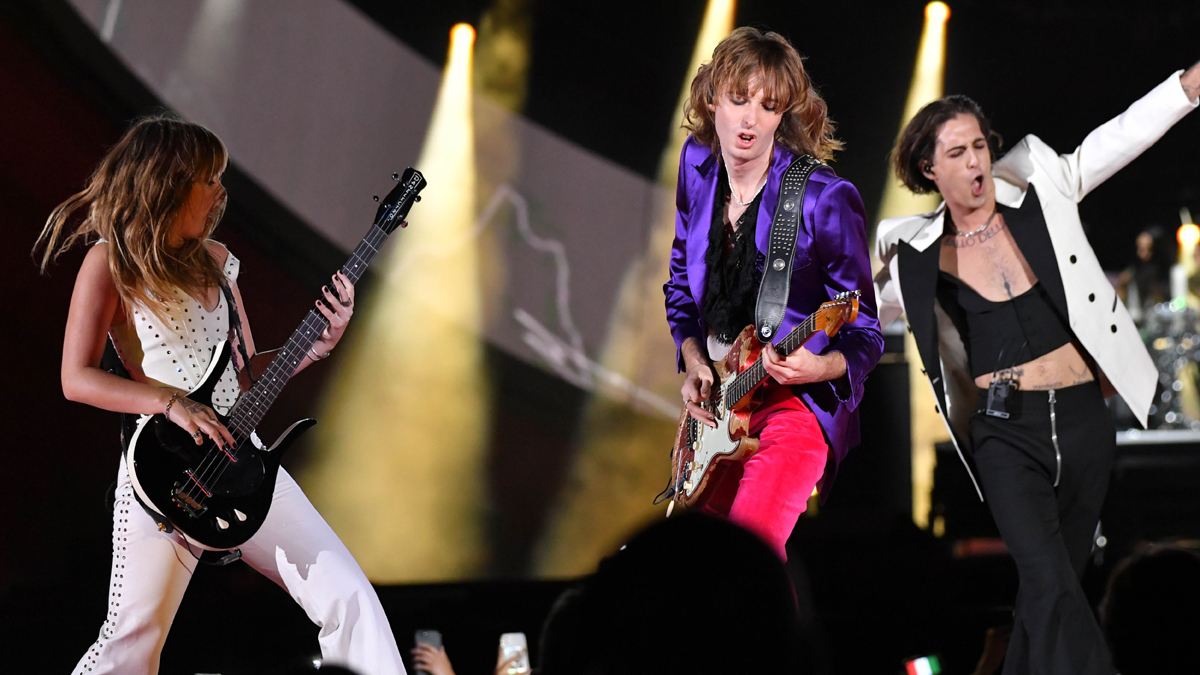
There is perhaps no greater seal of approval in rock circles than an invitation to open for the Rolling Stones, and late last year Måneskin crossed that one off their bucket list.
Recalling the band’s performance in front of Stones fans in Las Vegas, De Angelis says, “That’s crazy, right? We grew up playing Rolling Stones covers. They’re one of the reasons we started doing this in the first place. To be recognized by legends, it was so fulfilling.” She laughs. “I guess it means maybe we don’t suck so much.”
Raggi adds thoughtfully, “Playing for the Rolling Stones’ audience was a big challenge for us. The crowd came for the Stones, obviously, so we had to go out there and convince them. It was an important moment, and I guess it was a conquest for us to win over those fans. It was very, very cool.”
No other Italian rock band has had your kind of success in the States. Do you guys feel like pioneers?
Victoria De Angelis: “[Laughs] We’re very proud of it because it’s really the first time an Italian act [has made] it so big outside of Italy. But you know, we’re not really doing typical Italian music, so we feel like we can add a new shade to how Italy is perceived.”
Thomas Raggi: “What I think is cool is how we might be showing Italian people that they have a chance to do this. Young people, especially, might pick up an instrument and be like, ‘Okay, Måneskin have reached the States in a big way. Maybe I can make it.’”
We influence each other and we experiment. Our sound is the result of a long process of experimentation
Victoria De Angelis
Musically, your band has a pretty powerful and crushing sound. How much thought and discussion went into that sound?
Raggi: “A bit of that, sure. We like to have that big, crushing sound. Of course, seeing as we’re three players – the drums and two melodic instruments – it makes things easier for each one of us to really stand out. Whatever you play, people are going to hear it quite clearly.”
De Angelis: “Some of it’s talked about, but a lot isn’t. But then if one person changes something, it can influence the whole band. If you buy a new pedal or something, it can change the way you write.
“I think that’s really cool, though, how one person can have so much impact. If we had, I don’t know, six or seven players, could you really do that? We influence each other and we experiment. Our sound is the result of a long process of experimentation.”
Raggi: “Each of us has a different musical background, but together we’re a good match. Like Ethan, he’s into jazz and classic soul and experimental stuff, and that’s really cool when he plays a song that’s more rock. Then you throw in a little rap and whatever else we want to do, and suddenly there’s a crossover sound.”
Thomas, who really sparked your interest in the guitar?
Raggi: “It was a lot of hard rock music – Guns N’ Roses, Led Zeppelin. I got into Slash and Jimmy Page, but I also really loved Jimi Hendrix. The way he composed songs was utterly amazing. One of my biggest influences is John Frusciante from the Chili Peppers. I paid a lot of attention to the way he could play rhythm and lead with such feel and creativity. He’s just sick. I also really like Joe Bonamassa, but his style is very different from anything I do.”
You mention Frusciante. I hear that in how you play arpeggios, but also, like you said, the way you switch between rhythm and lead.”
Raggi: “Exactly, yeah. When you’re the only guitarist, you have a lot of responsibility because you’re the most harmonic instrument in the band. You have to build songs and keep the music together, but you’re also supposed to throw in fills and licks and solos.
“It’s a big role. Somebody like Frusciante gave me a lot of ideas in [terms of] how I would handle my own job as the sole guitarist in a band. As a soloist, like I mentioned, there’s Slash and Hendrix and Jimmy Page. I listened to them all quite a bit.”
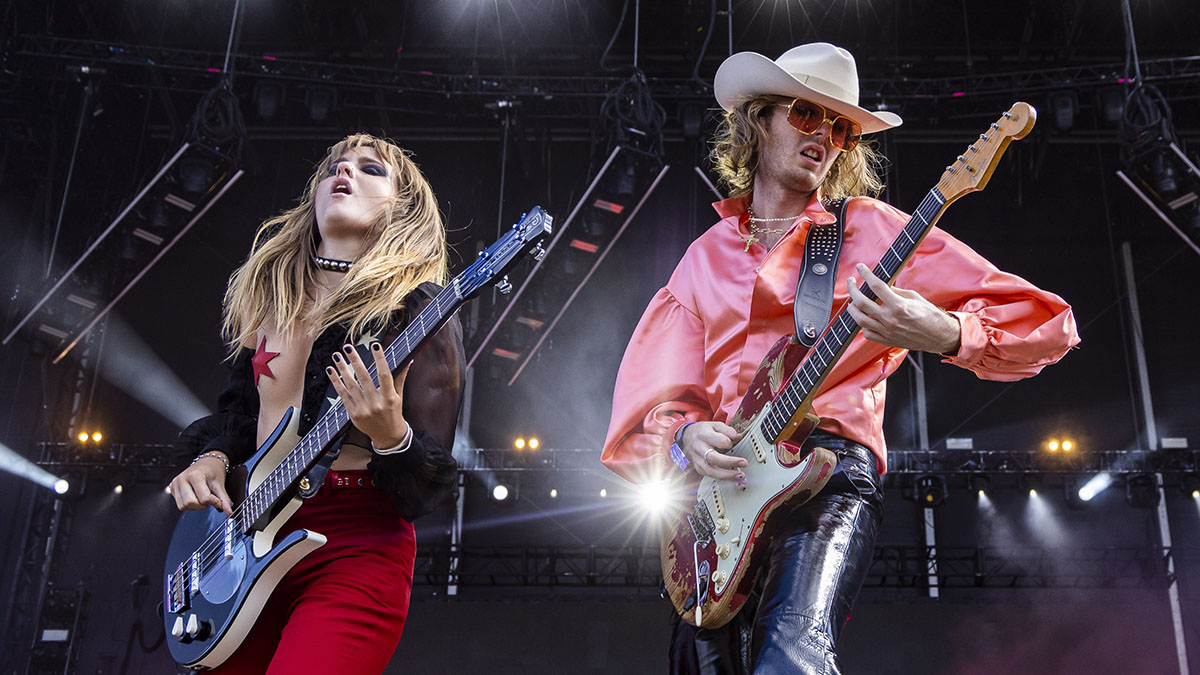
Victoria, how about you? Did you start out on bass?
De Angelis: “I started playing guitar when I was eight, but I switched to the bass a few years later. I bought my first bass because I wanted to play Come As You Are. I liked playing guitar, but the process of switching to bass felt very natural to me. I played bass in a lot of bands, and that’s where I found a lot of my passion for writing.
“I didn’t like playing alone in my room and stuff. Everything came to life for me when I was in a rehearsal studio with the whole band. I loved a lot of punk. When I was younger, I was into Public Image, the Clash, the Stooges – bands like that. Sonic Youth I loved. That music formed a lot of my ideas for how to play the bass. I like to be very driving and get a groove, but I do like to play parts that are almost like guitar riffs.”
You guys are saying something interesting, and I don’t know if you realize it. All of your influences are either American or British.
De Angelis: “Absolutely.”
Raggi: “That’s true. Oh, and the Jon Spencer Blues Explosion.”
Is there any Italian rock music that speaks to you?
De Angelis: “I mean, there are some good bands in Italy, but they always stayed in the underground scene.”
Raggi: “That’s right.”
De Angelis: “It’s something I discovered later on, but when I was younger I wasn’t really exposed to them. They weren’t really introduced to us in any way. There’s a band called Afterhours who are very good, but I found out about them later. I wasn’t influenced by them as a kid. I think we really just listened to the music our parents listened to.”
You were both pretty young when you formed Måneskin. Victoria, you mentioned you played in earlier bands. Did you feel as though any of them had a chance of making it?
De Angelis: “No. We were in many bad bands before this one. Very bad bands. [Laughs]”
Let’s talk about your instruments. Victoria, I see you’re into the Danelectro Longhorn bass. Why did you gravitate toward that model?
De Angelis: “Well, at first I played a Fender P-Bass, which was a lot of fun, but it was pretty heavy on me. I wanted a short-scale bass, so I bought a Fender Mustang. It was good, but it didn’t have the low end I was looking for. Then I happened to see the Danelectro Longhorn in a used-instrument page.
“It was pretty cheap, so I thought, ‘Okay, fine, I’ll try that.’ At first, I didn’t think it was good and I was like, ‘Whatever. I’ll just bring it to rehearsals.’ Then I started to play it with the band, and I was like, ‘Fuck, this is actually really good!’ That’s how it all started. I really liked its tone and how it felt. There’s not many bass players who use it, so I like how it’s a bit unique.”
I love how you can play funk and rock and metal with a Strat. It’s a very comfortable instrument, too, so that’s pretty great
Thomas Raggi
Now, Thomas, you play a few different guitars, but it looks like your main one is the ’63 Fender Relic Strat.
Raggi: “I use that, but to be honest, my main guitar is a Squier, not a Strat. It’s one of the older ones from Japan. I used to play only Fender Strats. To me, a Stratocaster is like a complete instrument. I love how you can play funk and rock and metal with a Strat. It’s a very comfortable instrument, too, so that’s pretty great. I’ve experimented with other types of guitars. Actually, I want to play a Danelectro because I’ve never used one before. That would be great.”
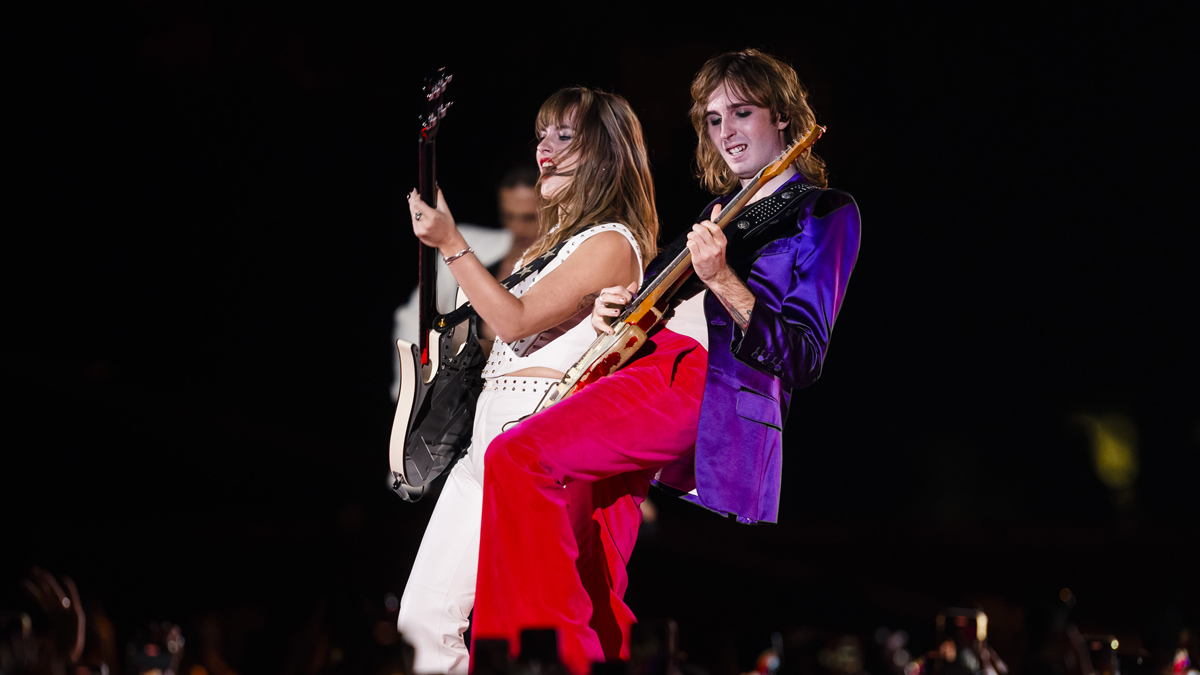
Let’s touch on a few of your songs. Zitti e buoni has a knockout riff. I hear some Jimmy Page there, but to me it all comes from Hendrix and Purple Haze.
Raggi: “Yeah, that’s true. Like I mentioned, I take a lot of inspiration from Jimi Hendrix. Purple Haze, Foxey Lady – I wasn’t thinking specifically about things like that, but Hendrix comes very naturally to me. I’m really into his music.”
Victoria, on a lot of songs, particularly on Supermodel, the sound of the bass really dominates the verses.
De Angelis: “It does. Thomas and I really like to mix it up. Sometimes he’ll be more out in front with the guitar, and other times the bass will be more dominant. It just depends on the writing process and who comes up with a riff. You don’t always want to hear one sound throughout. That’s something we find challenging — finding the right moments for the guitar to stand out, and other times when Thomas’ sound sits back a bit. We don’t want it to sound boring.”
You have a song called Make You Feel in which you two lock in for a really tight, pummeling sound. It’s a little reminiscent of the White Stripes.
De Angelis: “Oh, absolutely. We love the White Stripes, of course. Jack White is so fucking good. He’s one of the best guitarists ever, the way he experiments with sounds and effects. Actually, I would say Royal Blood – they have that big, thick sound. We like to try to have one melodic instrument carrying the whole thing, sometimes the guitar, and then it’s the bass. It gives more energy to the sound.”
Raggi: “That’s what I find very inspiring, how we can sustain the sound of the band with these very simple but creative parts. We’re both very flexible in that way.”
Thomas, there’s a song called Time Zone in which you play very beautiful, clean arpeggios, but at the end you go for it with a whacked-out solo.
Raggi: “[Laughs] Oh, thank you, bro. Thank you so much. Yeah, when I do a solo, I like to go for it.”
Okay, so we have to talk about Beggin’. You guys are so young; how the hell did you latch onto a Four Seasons song from 1967?
De Angelis: “[Laughs] It was very random, actually. It was a song we just started playing when we first got together. We didn’t have any originals yet, so we started playing covers at shows and parties. We thought it was interesting to take something that is far, far from you and then make it your own, which I think we did. It’s way more fun and more challenging than just playing it the way people know.”
Your albums have done well, but the band really broke through with singles. Does that create pressure for you to really make sure that your next album is as solid as your singles?
Raggi: “In a way, because I think people really need to listen to the full story about us, basically.”
De Angelis: ”We’re trying not to feel too much pressure, but of course, we want to do something good. The industry works the way it works, and that’s fine. We’re happy to do singles, but for our next album, it’s like a big photograph of what we are. We want to give you different tastes and not just do the more mainstream stuff. We’d like to experiment more.”
If you’re from America and you come to Italy, that’s one thing, but to have it the other way around, that’s something else. It’s crazy
Thomas Raggi
You’ve toured the States quite a bit in the past year. What are your impressions?
Raggi: “Oh, my, well, it’s nice! [Laughs] It’s great to see how people have accepted us. It’s really hard for a band like ours to reach so many people in America. There’s so many incredible artists in the States – in New York and L.A. and all over. If you’re from America and you come to Italy, that’s one thing, but to have it the other way around, that’s something else. It’s crazy. Overall, we’re very happy about what’s been happening.”
- Teatro D'Ira: Vol. I is out now via RCA Victor Europe.
Joe is a freelance journalist who has, over the past few decades, interviewed hundreds of guitarists for Guitar World, Guitar Player, MusicRadar and Classic Rock. He is also a former editor of Guitar World, contributing writer for Guitar Aficionado and VP of A&R for Island Records. He’s an enthusiastic guitarist, but he’s nowhere near the likes of the people he interviews. Surprisingly, his skills are more suited to the drums. If you need a drummer for your Beatles tribute band, look him up.






